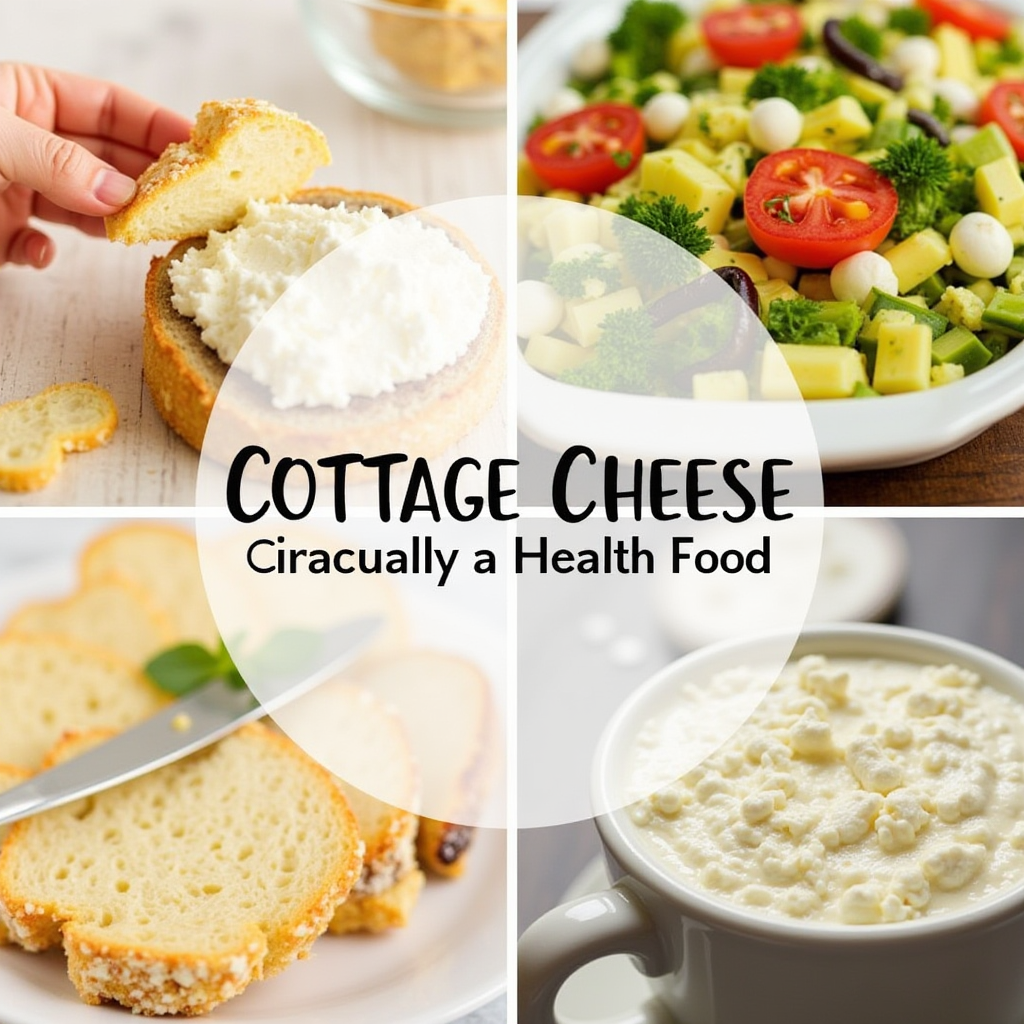Is Cottage Cheese Actually a Health Food?

The rise of cottage cheese as a dietary staple is impossible to ignore, thanks to its omnipresence on social media platforms. From being slathered on bagels to starring in pancake recipes or enhancing scrambled eggs, this versatile food has captured the attention of health enthusiasts and culinary creatives alike. But beyond its popularity lies a crucial question: Is cottage cheese genuinely beneficial for your health?
Understanding Cottage Cheese
Cottage cheese is categorized as a curdled milk product, similar to feta, mozzarella, and ricotta. Its appeal largely stems from its high protein content, low calorie count, and status as an unprocessed food.
Expert Insights on Cottage Cheese
To shed light on this creamy contender, we consulted nutritionists Dr. Megan Rossi, known as The Gut Health Doctor, and Dr. Federica Amati, head nutritionist at Zoe. They concur that cottage cheese is a healthy choice due to its nutritional profile.
- High in protein
- Low in calories
- Contains beneficial nutrients like potassium, calcium, and selenium
- Mild blood pressure regulation properties
The Lumpy Texture Explained
Cottage cheese’s unique texture is often a point of contention. However, these lumps are composed primarily of casein proteins. When milk is acidified, the casein coagulates into curds while whey remains separate.
Benefits of Different Milk Proteins
Casein and whey proteins serve distinct purposes in our diet. Casein provides a slower digestion process, promoting satiety, whereas whey is rapidly digested, making it ideal for post-workout nutrition to aid muscle recovery.
The Health Benefits of Cottage Cheese
Cottage cheese’s health benefits extend beyond its protein content. Here’s why this dairy product might just be a worthy addition to your diet:
- Supports thyroid health with selenium
- Aids in blood pressure regulation
- Promotes gut health when fermented properly (look for ‘live’ labels)
How to Incorporate Cottage Cheese into Your Diet
Cottage cheese’s versatility allows it to be incorporated in numerous ways:
- Mixed with balsamic vinegar as a salad dressing
- Served on sourdough with tuna and tomato for a balanced meal
- Used in pancakes, smoothies, or as a savory dip
For those not inclined towards cottage cheese, Dr. Amati recommends Greek yogurt as an alternative due to its probiotic content and calcium levels.
Exploring Other Protein Sources
Diversifying your protein intake is vital for long-term health:
- Plant-based proteins: legumes, whole grains, nuts, seeds, and tofu
- Fatty fish rich in omega-3s or nutrient-dense eggs from poultry
The Verdict on Cottage Cheese
Cottage cheese has rightfully earned its spot as a trendy food due to its nutritional benefits. Whether you’re enjoying it mixed with honey and rye crackers or as a veggie dip, cottage cheese offers more than meets the eye.
As we embrace dietary trends, let’s remember that balance is key. Cottage cheese can certainly be part of your health-conscious lifestyle while ensuring variety with other protein sources.